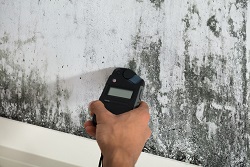
The Housing Ombudsman Service has been given new powers with the aim of improving awareness, accessibility and speed of complaint resolution, in order to further protect social housing tenants.
The changes to the Housing Ombudsman Scheme, which became effective on 1 September, will also broaden the basis on which it can refer cases to the Regulator of Social Housing (RSH) to include repeated complaint handling failure or potential systemic failure.
Additionally, RSH and the Ombudsman have agreed to share more information. This includes the regulator receiving notification from the Ombudsman on findings of severe maladministration, where an investigation raises a potential breach of a regulatory standard, details of non-compliance with orders and on complaint handling failures.
A new Complaint Handling Code, published in July, sets out clear expectations for landlords on handling housing complaints including the need for self-assessments against the Code by 31 December 2020. Complaint handling failure orders will be formally issued from 1 January 2021 and could relate to the handling of an individual case or the landlord's overall complaint-handling policy.
The new powers also include the ability to conduct systemic or thematic investigations beyond an individual complaint or landlord. A framework for these investigations will be published later this year.
Richard Blakeway, the Housing Ombudsman, said: 'These fundamental changes to our powers will help to improve the accessibility, speed and scope of redress for the benefit of residents. Broadening the scope of issues we can refer to the regulator will make this even more effective and builds on our strong working relationship.'
The Housing Ombudsman Scheme governs how the service works, setting out the matters that can and cannot be considered within the Ombudsman's role.
> Go to Service industry homepage


